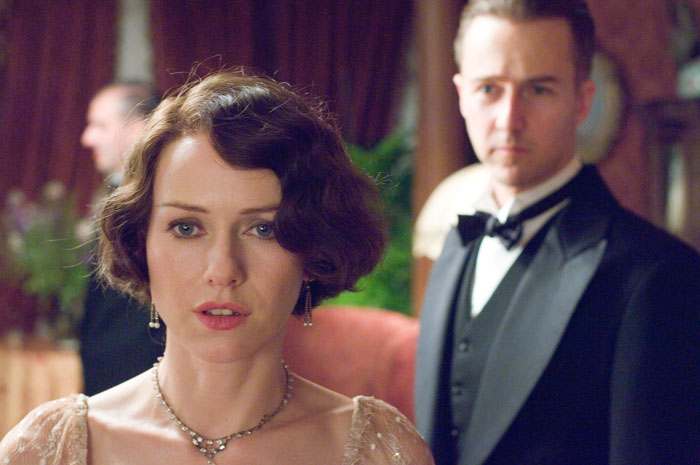Julieta (2016)
Director: Pedro Almodovar
Another excellent movie by Almodovar, if not one that bears all the familiar tones of the living directing legend's many other brilliant films.
Based on a trio of short stories by Alice Munroe, Julieta follows the titular protagonist over the course of a couple of decades, during which she experiences euphoria, depression, and many of the emotions in between. The tale is told in flashback, beginning with a middle-aged Julieta (Emma Suarez) unexpectedly running into an old friend of her estranged daughter's. This sends her mind reeling into the past, when she was a young woman (Adriana Ugarte) just getting into teaching. She randomly meets and has an affair with Xoan - a charming, attractive fisherman from a small coastal town. Despite some markedly peculiar circumstances, she ends up living with him and having his baby, whom they name Antia. Julieta's relationship with Xoan and Antia become troubling due to an affiar and an unexpected death, both of which send Julieta into a deep depression that takes many years to completely manifest and recover from.
Julieta is, as you might imagine from my description, far from a joyous affair. While there are some moments of levity and amusement, one of this movie's grand themes is the grievous impact that personal relationship failings can have. It deals with passion, lust, platonic love, dedication, betrayal, and a host of other emotions that are unlikely to leave one slapping their knees in amusement. All the same, it is a rather compelling movie. As with the many other Almodovar films I've seen, the man is incredibly deft at telling emotional stories that can have considerable impact without the proceedings becoming quagmires of darkness and depression. However, this movie does have a somewhat different feel than the other more recent Almodovar movies I've seen. Perhaps it is because it is an adaptation of another's writing - in this case, the much-lauded Alice Walker - but the playful vibrancy found in even Almodovar's most challenging and controversial movies is often absent. This isn't really a problem, but it is an observation one cannot help but make after seeing many of the director's other distinctive movies.
It's an excellent drama, to be sure. While I am not one who goes out of his way to watch deeply emotional movies about mothers attempting to reckon with damaged relationships with daughters, it was easy to see the mastery of this movie. Like nearly all Almodovar movies, it does not offer pat resolutions or "messages," but rather tells a story of troubled relationships and how people attempt to deal with them. It may not be one that I ever need to watch again, but discriminating movie-goers are likely to appreciate how well-crafted and well-acted this movie is.

The Red Turtle (2016)
Director: Michael Dudok de Wit
A moving, melancholy animated tale that can serve as a metaphor for life, or can just be enjoyed as a stirring mythological story. A well-deserved nominee for the Academy Awards' Best Animated Feature from 2016, and one that wrung more than a few tears from me and my wife.
Much of the movie's power comes from not knowing what will happen; with that in mind, I'll limit this synopsis to the beginning portions. It begins with a man lost at sea in a small boat, crashing into a tropical island. He spends time figuring out what resources he has to survive, and attempting to built a rudimentary sea craft to escape. However, even when he does put together seaworthy, if simple, vessels, they get inexplicably destroyed by some underwater force ramming into them. This turns out to be the titular red turtle, and the turtle's nature becomes the focal point of the rest of the story.
The Red Turtle is very much a mythical tale. The time period is all but indeterminable, the characters have no names, and the island on which the entire story unfolds is never given a specific location or name. What's more, there is virtually no dialogue beyond the man yelling a barely articulate "Hey!" a handful of times. When topped off with the fact that the main characters' physical features could make them natives of any part of about half of the earth, then you get a story that is nearly as universal as such a story could be. This is no mean feat for even a short cinematic story, let alone a 90-minute feature film.
Much more than the universal nature of the characters and setting, though, are the actual story and deeper themes. Without giving anything away, this silent, sublime, and sometimes sad tale is all but guaranteed to wring a few tears out of you. This is not due to base sentimentality but rather the realities of simple but mature depictions of life, regret, love, sacrifice, and death. Though the story unfolds with very few characters, on a tiny island, and with only a handful of conflicts, each one achieves maximum impact thanks to the expert level of visual storytelling.
An adjective that comes to mind with this film is "confident." Film is, by nature, a medium that allows visual wizardry and dynamic action to mask a multitude of other narrative sins. It takes a very bold filmmaker to create a movie like The Red Turtle - quiet, subdued, and relatively simple. This makes it all the more impressive for the impact it ultimately has. It probably won't have you running back for repeat viewings over and over, but this is one of the most touching and memorable animated movies I've ever seen.
Director: Pedro Almodovar
Another excellent movie by Almodovar, if not one that bears all the familiar tones of the living directing legend's many other brilliant films.
Based on a trio of short stories by Alice Munroe, Julieta follows the titular protagonist over the course of a couple of decades, during which she experiences euphoria, depression, and many of the emotions in between. The tale is told in flashback, beginning with a middle-aged Julieta (Emma Suarez) unexpectedly running into an old friend of her estranged daughter's. This sends her mind reeling into the past, when she was a young woman (Adriana Ugarte) just getting into teaching. She randomly meets and has an affair with Xoan - a charming, attractive fisherman from a small coastal town. Despite some markedly peculiar circumstances, she ends up living with him and having his baby, whom they name Antia. Julieta's relationship with Xoan and Antia become troubling due to an affiar and an unexpected death, both of which send Julieta into a deep depression that takes many years to completely manifest and recover from.
Julieta is, as you might imagine from my description, far from a joyous affair. While there are some moments of levity and amusement, one of this movie's grand themes is the grievous impact that personal relationship failings can have. It deals with passion, lust, platonic love, dedication, betrayal, and a host of other emotions that are unlikely to leave one slapping their knees in amusement. All the same, it is a rather compelling movie. As with the many other Almodovar films I've seen, the man is incredibly deft at telling emotional stories that can have considerable impact without the proceedings becoming quagmires of darkness and depression. However, this movie does have a somewhat different feel than the other more recent Almodovar movies I've seen. Perhaps it is because it is an adaptation of another's writing - in this case, the much-lauded Alice Walker - but the playful vibrancy found in even Almodovar's most challenging and controversial movies is often absent. This isn't really a problem, but it is an observation one cannot help but make after seeing many of the director's other distinctive movies.
It's an excellent drama, to be sure. While I am not one who goes out of his way to watch deeply emotional movies about mothers attempting to reckon with damaged relationships with daughters, it was easy to see the mastery of this movie. Like nearly all Almodovar movies, it does not offer pat resolutions or "messages," but rather tells a story of troubled relationships and how people attempt to deal with them. It may not be one that I ever need to watch again, but discriminating movie-goers are likely to appreciate how well-crafted and well-acted this movie is.
The Red Turtle (2016)
Director: Michael Dudok de Wit
A moving, melancholy animated tale that can serve as a metaphor for life, or can just be enjoyed as a stirring mythological story. A well-deserved nominee for the Academy Awards' Best Animated Feature from 2016, and one that wrung more than a few tears from me and my wife.
Much of the movie's power comes from not knowing what will happen; with that in mind, I'll limit this synopsis to the beginning portions. It begins with a man lost at sea in a small boat, crashing into a tropical island. He spends time figuring out what resources he has to survive, and attempting to built a rudimentary sea craft to escape. However, even when he does put together seaworthy, if simple, vessels, they get inexplicably destroyed by some underwater force ramming into them. This turns out to be the titular red turtle, and the turtle's nature becomes the focal point of the rest of the story.
The Red Turtle is very much a mythical tale. The time period is all but indeterminable, the characters have no names, and the island on which the entire story unfolds is never given a specific location or name. What's more, there is virtually no dialogue beyond the man yelling a barely articulate "Hey!" a handful of times. When topped off with the fact that the main characters' physical features could make them natives of any part of about half of the earth, then you get a story that is nearly as universal as such a story could be. This is no mean feat for even a short cinematic story, let alone a 90-minute feature film.
Much more than the universal nature of the characters and setting, though, are the actual story and deeper themes. Without giving anything away, this silent, sublime, and sometimes sad tale is all but guaranteed to wring a few tears out of you. This is not due to base sentimentality but rather the realities of simple but mature depictions of life, regret, love, sacrifice, and death. Though the story unfolds with very few characters, on a tiny island, and with only a handful of conflicts, each one achieves maximum impact thanks to the expert level of visual storytelling.
An adjective that comes to mind with this film is "confident." Film is, by nature, a medium that allows visual wizardry and dynamic action to mask a multitude of other narrative sins. It takes a very bold filmmaker to create a movie like The Red Turtle - quiet, subdued, and relatively simple. This makes it all the more impressive for the impact it ultimately has. It probably won't have you running back for repeat viewings over and over, but this is one of the most touching and memorable animated movies I've ever seen.







